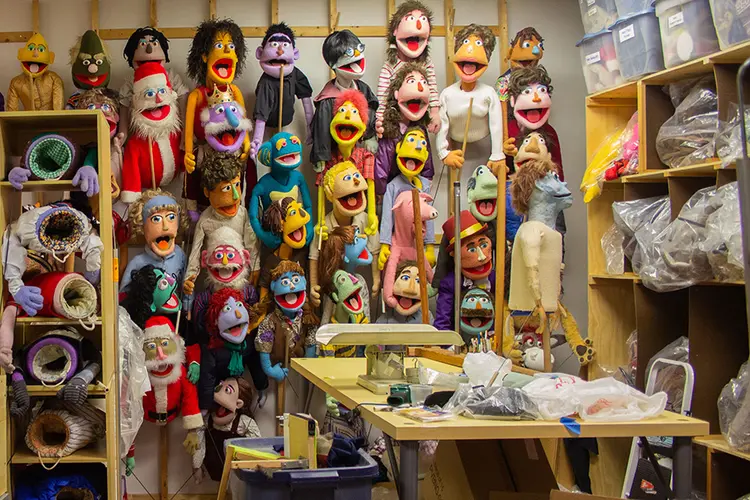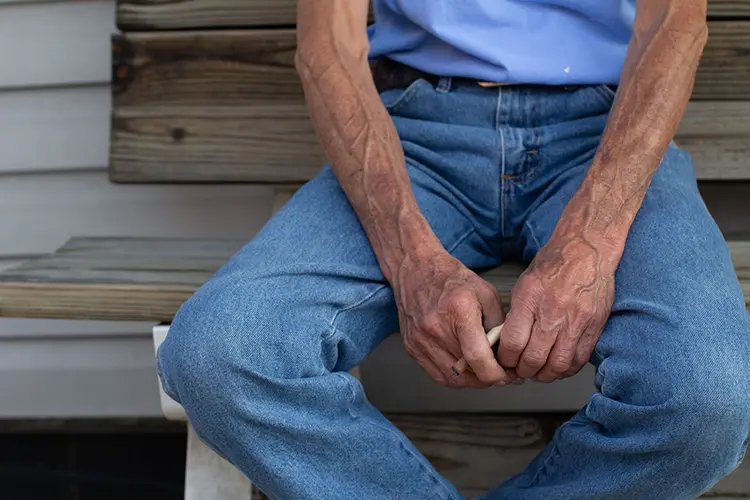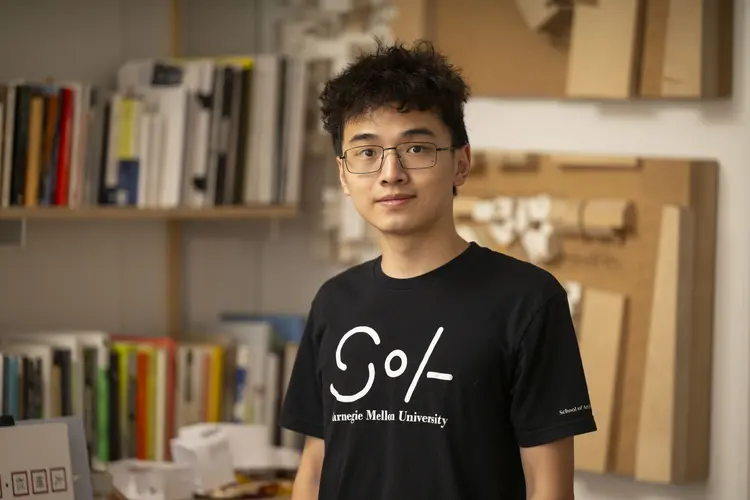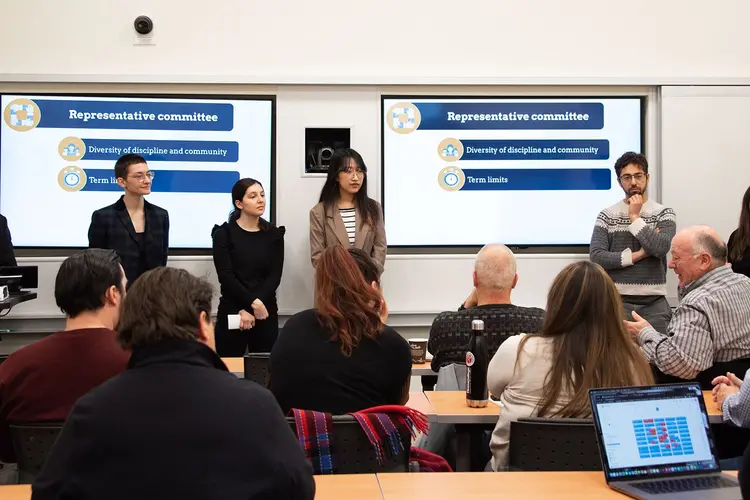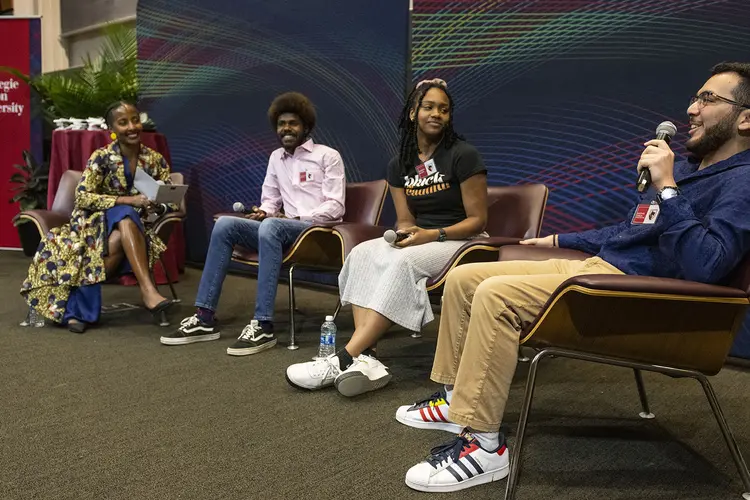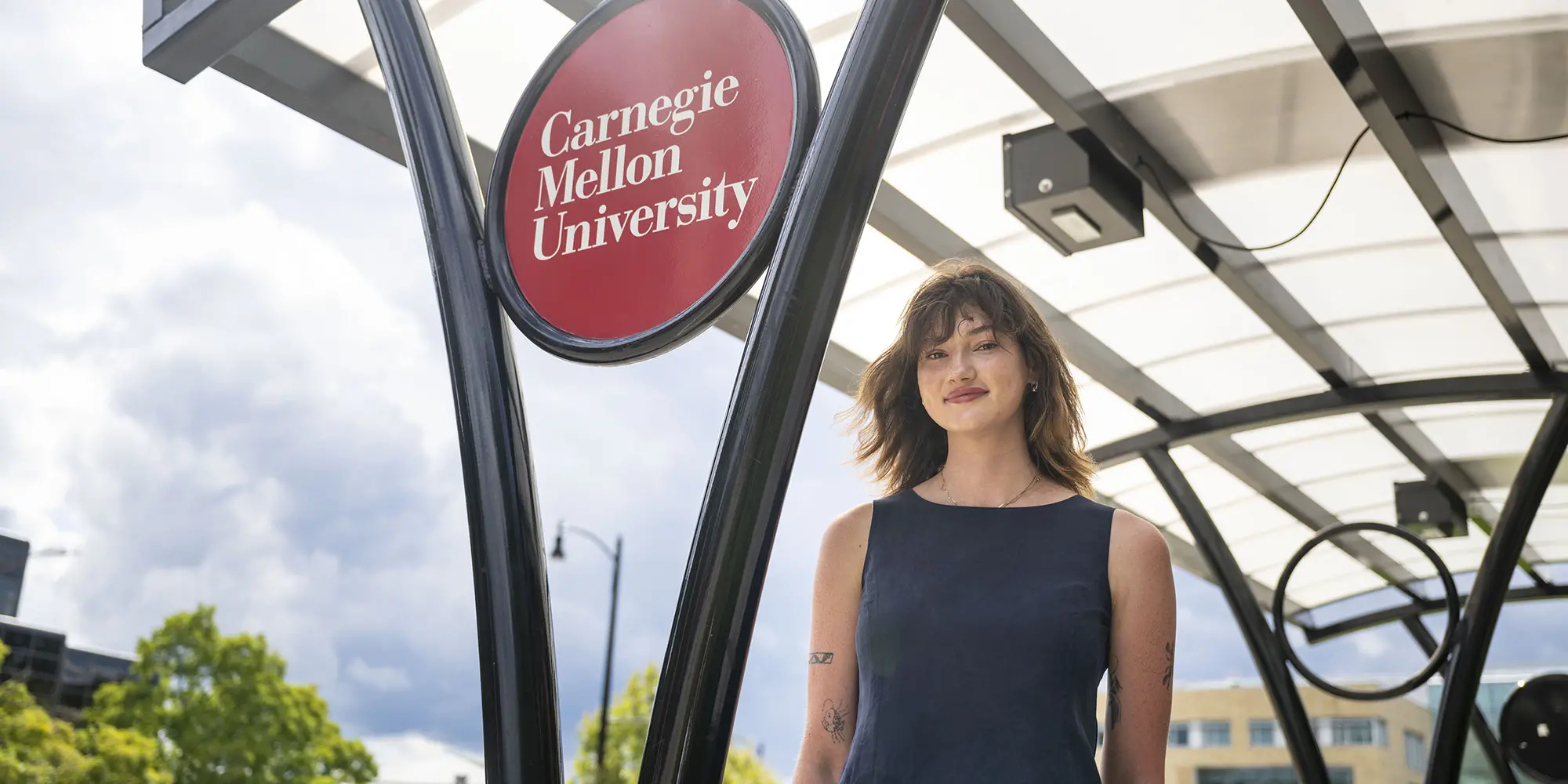
SURF Grant Supports Student’s Exploration of Pittsburgh’s ‘Forgotten’ Communities
Media Inquiries
In a world where people tend to stay inside their political and social bubbles, Hannah Lesser is decidedly different. With an open mind and a free bus pass built into her Carnegie Mellon University Student ID card, the double major in communication design(opens in new window) and social and political history(opens in new window) was unstoppable(opens in new window) over the summer as she set out to explore Pittsburgh’s “forgotten” neighborhoods.
“There is so much to explore in Pittsburgh. For starters, what’s with all the steps(opens in new window)? Here I was a history major, but I didn’t know a lot of the history of where I was,” Lesser said, regarding her motivation for the project. She was also curious about the name Carnegie Mellon. “I knew who Andrew Carnegie was, obviously, but I didn’t know a lot about him or how he built his steel empire, how he relied on these towns that I’ve been going to. This school was essentially built on the backs of those towns, and now we act like they kind of don’t exist.”
Supported by a Summer Undergraduate Research Fellowship (SURF)(opens in new window), Lesser picked a Pittsburgh Regional Transit bus route every week for 10 weeks and rode it to the end. Most of the routes run along the city’s rivers and end in former steel towns in various states of revitalizing. Often she would plan her trips when a community event was happening — a farmer’s market or concert in the park — but she found people willing to talk with her simply while sitting outside their homes or taking a break from mowing their lawns.
“I was so happy when Hannah received the SURF grant because I knew it would allow her to spend time swimming in the complicated ideas of wealth and resource distribution, class, socioeconomics and, most importantly, human stories,” said Dylan Vitone(opens in new window), Lesser’s design professor and academic adviser. “We live in bubbles, and over the past few months she was able to gain access to many different worlds and bring back the beauty and wisdom those worlds have.”
After stepping off the bus in each town, Lesser spent time walking around and “getting a vibe” for the neighborhood, introducing herself, taking photos and asking questions centered on the experiences of the people who live there.
“Many people I talked with were here in the 1950s and 60s, when it was a super-prosperous area, and in the 90s when it declined. So, you get these verbal histories from people that are not in any books or on any websites,” she said. “It was a perspective I think would be essentially impossible to get if I were just sitting in Hunt Library.”
"Hannah will also have created an artifact that will ... hopefully make us care for one another just a little more." — Dylan Vitone
Every factor mattered in terms of how people responded to her, from what she wore, to the first thing she said to someone, to whether she approached them with her camera or without her camera. Then, there was the aspect of how to create a story within a space by getting different perspectives on the same topic.
“Going into the project, I didn’t expect to learn so much about the nuances of journalism, and my trips were a lot more emotionally charged than I think I had anticipated, but not in a bad way,” she said. “For example, I would talk with someone who is using low-income housing in an area and then I would walk two blocks down and find someone who has strong feelings against low-income housing. Or I would talk with someone who is running for school board and then talk with someone who is against the person who is running for school board.”
Some of the most hopeful stories she heard were ones where people took initiative and fought for the benefit of the neighborhood, either by joining City Council or simply by remaining persistent. She spoke with people in Trafford, for example, who told her Trafford had been having issues for a long time with the power going out frequently and seemingly without reason. It turned out the infrastructure for the power grid had not been repaired or replaced in that area for over 30 years.
“Because they didn't give up, the components were finally replaced, and they have not had a major outage since,” she said.
In Tarentum, she stumbled on an inconspicuous vintage toy store. While speaking to the owner, she learned he used to own and operate a traveling puppet company that had not been in operation for years due to lack of demand.
“It was one of the more surprising discoveries of my summer,” she said. “He played recordings for me of the kinds of performances he had put on over the years and songs and jingles he had written, and he showed me the catalog of the puppets he had for sale.”
Over in Elizabeth, a man shared a heartwarming story about his relationship with his mother, who was from Japan. His father met her during the Korean War, and they moved back to the United States together. When they bought their house in 1975, she was the only Japanese woman in Elizabeth. He described the prejudice she faced from some, but also how highly respected and loved she was by others. He didn't have the best relationship with his siblings, he said, and had been unable to enter his mother's house since her passing.
“He was sitting on a bench right outside the house when I met him, so I sat with him. He told me the bench was where he always used to sit with his mother, and that the flowers around him were in her memory,” she said. “It was a touching conversation; one I'll carry with me for a while.”
This fall, via independent study, Lesser will compile her stories, interviews and photography into a book. She hopes the book will encourage people wherever they find themselves to think critically about the spaces they occupy, how they navigate those spaces and what their place is in a larger system.
“Hannah will have many beautiful photographs, wonderful writing and a fabulously designed book to look back on, but she will also have created an artifact that will offer insights into who and what makes this part of the country what it is — an artifact that will hopefully make us care for one another just a little more,” Vitone said.
